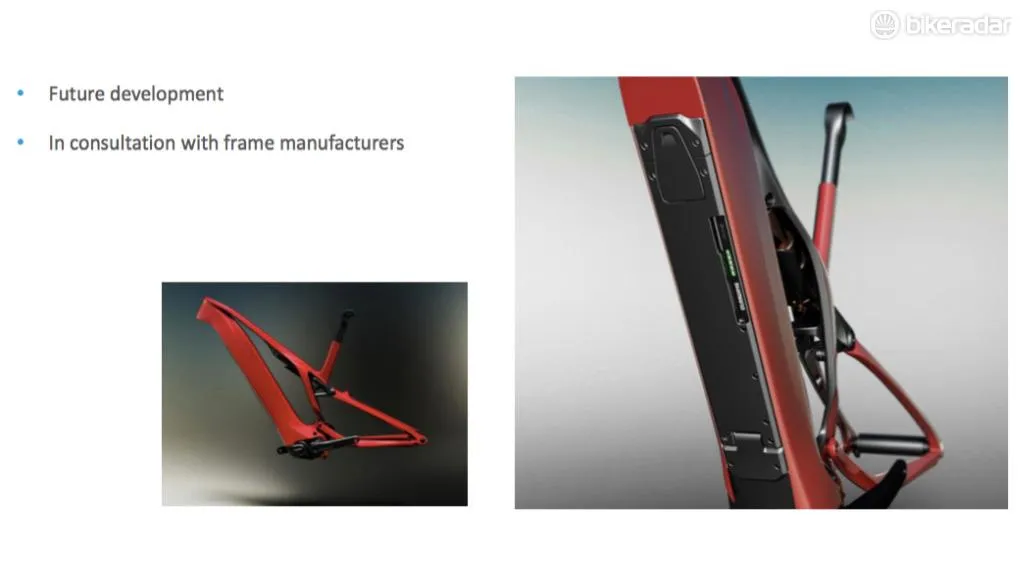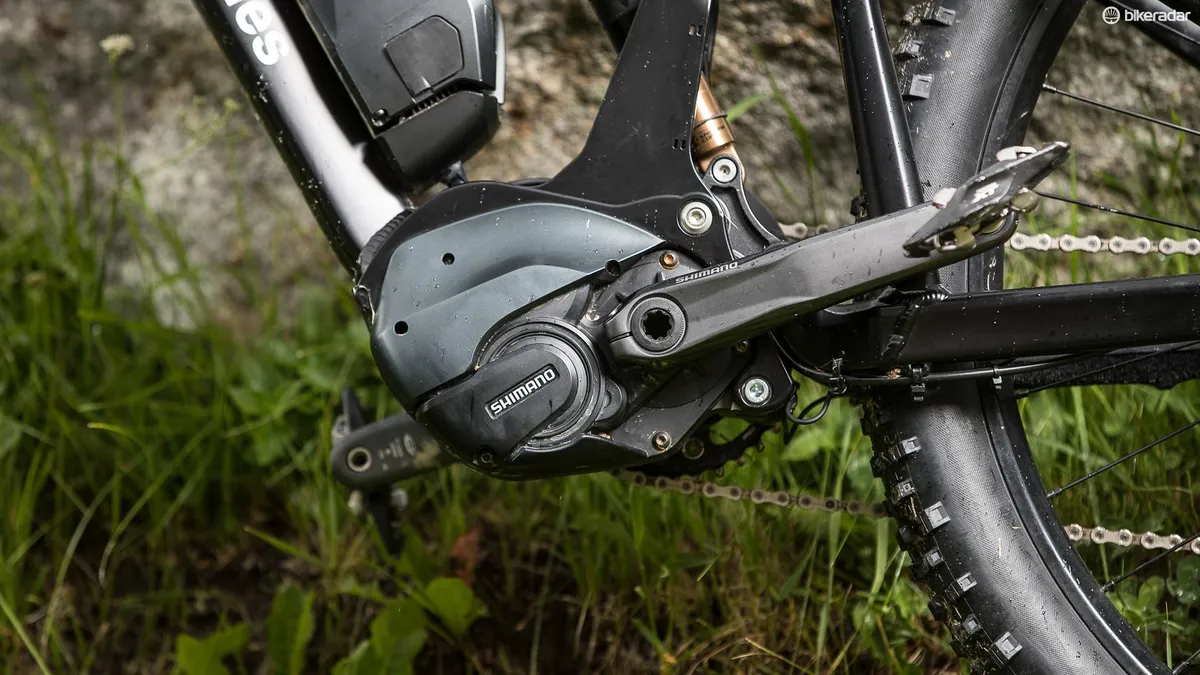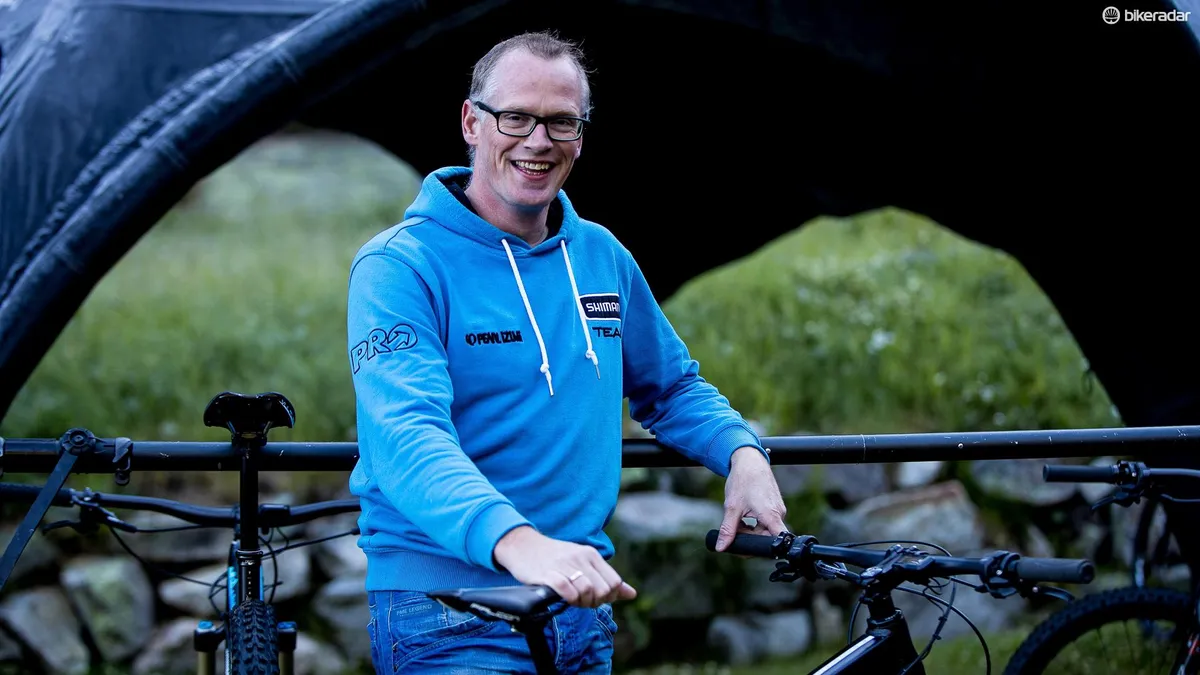In a short time, e-bikes have evolved from clunky, clumsy add-on kits to relatively smoothly integrated systems. However, apart from the likes of Vivax, e-bikes are still pretty easy to tell apart from their solely human powered counterparts, but that’s set to change.
- Shimano STEPS E8000 first ride review
- Five unusual e-bikes that are worth knowing about
- Five e-bikes that could replace your car
Henry Bosch is the product coordinator for Shimano’s electric STEPS system. He believes that the future of e-bikes is one where they’ll be almost indistinguishable from normal machines, something he says Shimano — and competitors — are working towards.
“I think within one or two years you’ll have to look twice at a bike to see if it’s an e-bike or a normal one. People don’t want to ride on a bike that is covered with battery packs and has a really high weight. They want it to be light and easy to handle and carry,” says Bosch.
At the moment, the limits of battery technology mean that getting sufficient range requires a fairly large battery. Many bike manufacturers have been working to adapt existing systems into much cleaner looking designs, such as Lapierre’s new Overvolt AM700, which has the Bosch battery pack incorporated into the frame — right on top of the motor rather than the conventional downtube placement.
Specialized worked with motor manufacturer Brose on their Turbo Levo e-MTB to integrate the battery into the downtube to give a much cleaner looking machine.

Shimano has also been working with frame manufacturers on ways to integrate their E8000 STEPS battery in a similar fashion. Although the exact details are yet to be confirmed, we’ve seen a CAD mockup of the design, which places the battery into the downtube.
Of course, these bikes are still noticeably different to normal machines, with the bulk of the battery and substantial drive units giving them away. However, battery technology moves rapidly on and new technologies, such as Lithium-Sulphur cells, promise to give up to five times more energy by weight than existing Lithium-Ion designs.
In the near future, it could be possible to have a battery small enough that it would seamlessly integrate into a conventional looking frame and still provide a respectable range. Motors are also likely to get smaller, more efficient and quieter too.

So is the future of cycling a world where every bike might have the ability to help you up climbs?
Bosch thinks that might be the case: “For the future, I see the bike as a device where you will either have support or ride yourself and it’s not limited by drag inside. I think the motor units will become better and better and still give you a good, normal riding feel.”
For many people, having a helping hand on climbs would make the bicycle much more attractive as an everyday utility tool for commuting or getting to the shops. Being able to ride longer distances, or in hilly terrain without arriving drenched in sweat and tired, will certainly appeal to many people who might well be put off using a bike at the moment.

That means there’s vast potential for a much more efficient and environmentally friendly form of transport that doesn’t discriminate when it comes to fitness.
Of course, for the sports and enthusiast market, solely human powered machines will always be in demand, something Henry readily admits. It’s quite possible that they’ll be in the minority however and the signs are already there that this is starting to happen. In Switzerland, e-bike sales are already outstripping those of conventional machines and it’s a similar story in Germany and Austria. It’s no coincidence that these are fairly mountainous countries, but it's a trend that's likely to continue as more people experience the benefits of e-bikes and they become more affordable.
Do you think that e-bikes are a good thing to get more people cycling or the work of the devil? Let us know in the comments below or on the BikeRadar Facebook page.


